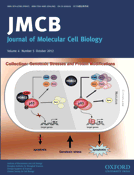
AMERICAN JOURNAL OF PHYSIOLOGY-CELL PHYSIOLOGY
Scope & Guideline
Fostering Innovation in the Heart of Cellular Science.
Introduction
Aims and Scopes
- Cellular Mechanisms of Physiology:
The journal emphasizes studies that elucidate the cellular and molecular mechanisms responsible for physiological processes, including metabolic pathways, signaling cascades, and cellular responses to environmental stimuli. - Pathophysiology and Disease Mechanisms:
Research exploring the alterations in cellular physiology associated with various diseases, such as cancer, diabetes, and cardiovascular disorders, is a core focus, aiming to bridge basic research with clinical implications. - Innovative Experimental Approaches:
The publication encourages the use of cutting-edge techniques, including advanced imaging, omics technologies, and computational modeling, to investigate cellular functions and interactions. - Interdisciplinary Research:
The journal promotes interdisciplinary studies that integrate molecular biology, biochemistry, and biophysics to provide a comprehensive understanding of cell function and its implications in physiological and pathological contexts. - Regenerative Medicine and Tissue Engineering:
There is a growing interest in research related to regenerative medicine and tissue engineering, focusing on the cellular mechanisms of tissue repair and the development of therapeutic strategies.
Trending and Emerging
- Cellular Metabolism and Bioenergetics:
There is a rising interest in understanding the metabolic pathways and bioenergetics of cells, particularly in the context of diseases such as obesity, diabetes, and cancer, highlighting the importance of metabolism in cellular function. - Microbiome and Host Interactions:
Research exploring the interactions between the microbiome and host cellular physiology is gaining traction, emphasizing the role of gut microbiota in health and disease. - Extracellular Vesicles and Cell Communication:
The study of extracellular vesicles as mediators of intercellular communication and their roles in various physiological and pathological processes is an emerging area of interest. - Stem Cell Biology and Regenerative Therapies:
There is an expanding focus on stem cell biology, particularly the mechanisms underlying stem cell differentiation, tissue regeneration, and their applications in regenerative medicine. - Mechanobiology and Cellular Responses to Mechanical Stimuli:
Research into how mechanical forces affect cellular behavior and physiology is trending, with implications for understanding tissue development, repair, and disease mechanisms.
Declining or Waning
- Basic Physiological Studies:
There has been a noticeable decrease in publications dedicated solely to fundamental physiological studies without a clear application to disease or medical relevance, as the journal shifts towards more translational research. - Animal Models of Disease:
The reliance on traditional animal models for physiological studies appears to be waning, with researchers increasingly favoring human-derived or organoid models that better mimic human pathophysiology. - Static Cell Culture Models:
The use of conventional static cell culture systems is declining in favor of more dynamic and physiologically relevant 3D culture systems that better replicate in vivo conditions. - Single-Cell Analysis:
Although single-cell technologies are gaining traction, there has been a relative decline in the publication of studies solely focused on single-cell analysis without integrating other methodologies or broader physiological implications. - Chronic Disease Models:
Research focusing exclusively on chronic disease models without exploring underlying cellular mechanisms or therapeutic interventions is becoming less common, as the journal emphasizes studies with potential clinical applications.
Similar Journals

DNA AND CELL BIOLOGY
Connecting Researchers to the Heart of BiologyDNA AND CELL BIOLOGY, published by Mary Ann Liebert, Inc, is a distinguished journal in the realms of cell biology, genetics, and molecular biology, holding a notable position in its Q3 and Q2 quartile rankings across multiple academic categories as of 2023. With an ISSN of 1044-5498 and an E-ISSN of 1557-7430, this journal has been a pivotal platform for the dissemination of cutting-edge research since its inception in 1990, extending its coverage through 2024. Situated in the United States, the journal offers high-quality peer-reviewed articles, exploring significant advancements in biological sciences while fostering interdisciplinary collaborations within the research community. Though it currently does not offer open access, subscribed institutions and individual readers benefit from its rich repository of knowledge. The journal's rigorous standards and impactful content make it an essential resource for researchers, professionals, and students alike, aiming to stay at the forefront of discoveries influencing DNA and cellular dynamics.

Cell Regeneration
Innovating Tomorrow's Therapies through Cell ScienceCell Regeneration, published by SPRINGERNATURE, stands at the forefront of biological research, focusing on the dynamic field of cellular development and regenerative biology. Since its establishment in 2012, this journal has embraced an Open Access model, facilitating widespread dissemination of key findings and fostering collaboration among researchers in the Netherlands and beyond. With an impact factor underscoring its significance, Cell Regeneration is positioned in the Q2 category in both Cell Biology and Developmental Biology as of 2023, ranked #32 out of 82 and #170 out of 285 in relevant Scopus peer fields. The journal encompasses a broad spectrum of research that advances our understanding of cellular processes, offering vital insights into regenerative mechanisms and their applications in therapies. This robust platform not only serves as a valuable resource for researchers, professionals, and students but also encourages scholarly dialogue and innovation in the fast-evolving landscape of cell biology.

BMC Molecular and Cell Biology
Illuminating the pathways of modern biological research.BMC Molecular and Cell Biology is a forward-thinking open-access journal published by BMC, specializing in the vital fields of molecular biology and cell biology. Since its inception in 2019, the journal has carved a niche for itself, ranking in the Q3 quartile in both Cell Biology and Molecular Biology categories as of 2023. With an ISSN of N/A and an E-ISSN of 2661-8850, the journal provides a platform for groundbreaking research, high-quality reviews, and innovative methodologies. Situated in the United Kingdom, BMC Molecular and Cell Biology promotes a diverse range of studies, addressing fundamental questions in biology that resonate with both experts and new researchers alike. The journal's commitment to open access ensures that valuable findings are readily available to the global scientific community, fostering collaboration and knowledge-sharing across disciplines. Researchers aiming to contribute to the field of cell and molecular biology will find this journal an indispensable resource for both publishing and staying informed on the latest advances.

TRENDS IN CELL BIOLOGY
Connecting Researchers to Cutting-Edge Cell BiologyTRENDS IN CELL BIOLOGY, published by CELL PRESS, is a premier journal in the field of cell biology, recognized for its high-impact contributions since its inception in 1991. As a distinguished member of the Q1 quartile within its category, the journal holds an impressive Scopus ranking of #8 out of 285, placing it in the 97th percentile of the field, which underscores its reputation for excellence. The journal serves as an essential resource for researchers, professionals, and students who are engaged with groundbreaking advancements in biochemistry, genetics, and molecular biology. Although it is not open access, it provides critical insights into the latest trends, reviews, and advancements in cell biology, making it a crucial tool for anyone committed to understanding the complexities of cellular systems. With a focus on innovative and transformative research, TRENDS IN CELL BIOLOGY continues to shape the discourse in cell biology and enhance the scientific community's knowledge.

Journal of Molecular Cell Biology
Unlocking the secrets of cellular mechanisms.The Journal of Molecular Cell Biology, published by Oxford University Press, is a leading platform for groundbreaking research in the fields of cell biology, genetics, and molecular biology. With an impact factor that places it in the Q1 and Q2 quartiles across key academic categories, this journal has become an essential resource for researchers and professionals committed to advancing our understanding of cellular mechanisms and genetic processes. Since becoming Open Access in 2019, it has enhanced the accessibility of high-quality research, fostering collaboration and knowledge sharing within the scientific community. The journal's Scopus rankings reflect its significant impact in the field, particularly in genetics and molecular biology, ranking within the top percentiles. With a convergence of research spanning from 2009 to 2024, the Journal of Molecular Cell Biology remains at the forefront of innovative discoveries and critical discussions, making it a vital resource for students, academics, and industry experts alike.

Function
Unraveling biological complexities for transformative healthcare solutions.Function is a pioneering open access academic journal published by Oxford University Press, dedicated to advancing research in the fields of Cancer Research, Cell Biology, Molecular Medicine, and Physiology. Since its inception in 2020, this journal has quickly established itself as a vital resource for researchers and professionals alike, achieving a commendable impact factor in the 2023 rankings, where it stands in the Q2 quartile across multiple categories. Located in the heart of the United Kingdom, Function aims to foster a global exchange of knowledge by providing free and unrestricted access to cutting-edge research, facilitating collaboration and innovation within the scientific community. With a robust focus on emerging discoveries and interdisciplinary approaches, this journal encourages contributions that unravel the complexities of biological functions, paving the way for transformative advancements in healthcare and related sciences. As it converges from 2020 to 2024, Function continues to be an invaluable platform for disseminating research that has the potential to shape the future of medicine and biology.

CELL RESEARCH
Exploring Innovations in Molecular BiologyCELL RESEARCH is a premier peer-reviewed journal dedicated to advancing the field of cell biology and molecular biology, published by SpringerNature. With an impressive impact factor and consistently ranking in the Q1 quartile for both cell biology and molecular biology, this journal serves as a pivotal resource for researchers, professionals, and students seeking to explore the latest discoveries and advancements in cellular mechanisms and their implications for health and disease. Since its inception in 1996, CELL RESEARCH has cultivated a distinguished reputation, currently boasting ranks in the top percentile of Scopus categories, reaffirming its influence and relevance to the scientific community. Although it is not an Open Access journal, its rigorous selection process ensures the publication of high-quality articles that contribute significantly to our understanding of life sciences. For those deeply engaged in the realms of biochemistry, genetics, and molecular biology, CELL RESEARCH is an essential conduit of innovative research and critical insights.

Cell Communication and Signaling
Fostering Global Collaboration in Cellular ResearchCell Communication and Signaling is a premier peer-reviewed journal published by BMC that has made significant contributions to the fields of biochemistry, cell biology, and molecular biology since its establishment in 2003. As an open access journal, it offers unrestricted access to high-quality research, fostering collaboration and innovation among scientists around the globe. The journal is distinguished by its Q1 ranking in all three relevant categories for 2023, underscoring its critical role in advancing the understanding of cellular communication mechanisms and signaling pathways. Positioned within the United Kingdom, Cell Communication and Signaling has been an invaluable resource for researchers, professionals, and students alike, ensuring that the latest findings are accessible to a diverse range of audiences. With an impressive Scopus ranking—placing it in the top percentiles within its subject areas—this journal continues to set the standard for excellence in the pursuit of understanding complex cellular interactions.

Adipocyte
Elevating Knowledge in Fat Cell ResearchAdipocyte is a distinguished academic journal published by Taylor & Francis Inc., focusing on groundbreaking research within the realms of cell biology and histology. With an impact factor that reflects its importance, the journal has achieved a Q2 ranking in Cell Biology and a prestigious Q1 ranking in Histology for 2023, cementing its reputation as a leading resource for scientists and researchers in these fields. Since transitioning to Open Access in 2019, Adipocyte has fostered a wider dissemination of knowledge, enabling unrestricted access to a wealth of studies and reviews critical for advancing the understanding of adipose tissue biology. Located in the United Kingdom, with converged years spanning from 2013 to 2024, the journal serves as an essential platform for the exchange of innovative ideas and findings, supporting the academic community's efforts to unravel the complexities related to fat cells and their implications in health and disease.

FEBS Open Bio
Connecting researchers to the pulse of biochemical advancements.FEBS Open Bio is a leading open-access journal published by Wiley, dedicated to advancing our understanding of biochemistry, genetics, and molecular biology. Since its inception in 2011, this journal has provided a robust platform for researchers to share their findings with a wider audience, ensuring the dissemination of high-quality scientific knowledge. With an impact factor reflecting its stature in its field, FEBS Open Bio is ranked #77 out of 221 in general biochemistry, genetics, and molecular biology, placing it in the 65th percentile among its peers. This journal serves as an essential resource for professionals, researchers, and students alike, fostering collaboration and innovation within the scientific community. The commitment to open access not only enhances visibility but also promotes transparency in research, making it a vital contributor to the ongoing dialogue in biochemical and molecular biological sciences. For those looking to stay at the forefront of research developments, FEBS Open Bio is a key publication addressing the latest trends and discoveries in the field.